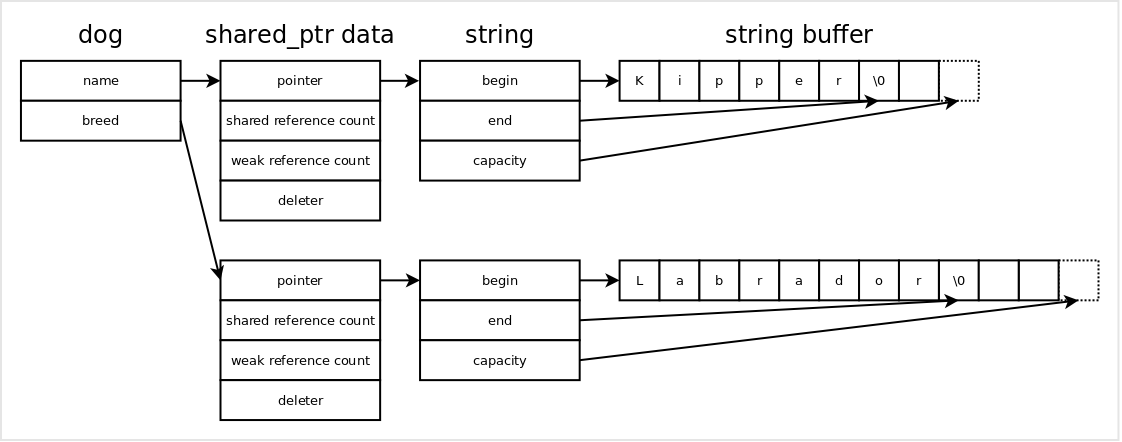On coding style
Applying writing style theory to code writing.
This article is also available as presentation slides
Introduction
As a student you might have encountered advice such as the one from the American classic “The Elements of Style” by William Strunk and E. B. White. It’s a list of rules starting with:
Form the possessive singular of nouns by adding ‘s.
There are some gems in there such as:
Omit needless words
Overall they do not offer an insight into how those rules define style. They appear as an almost random selection.
Contrast this with “Clear and simple as the truth: writing classic prose” by Francis-Noël Thomas and Mark Turner:
A style is defined by its conceptual stand on truth, presentation, writer, reader, thought, language, and their relationship
This sounds abstract, but in the book, they make the case that the above define style, that there are many styles, and propose the classic style as a general usage/default style.
This approach on general writing can be used with regards to code (i.e. programming) style.
Sample
Let’s look at a few samples.
Problem
This is Kipper, it’s a Labrador.

Should we need to transmit information about the dog, a JSON text format would be reasonable:
1
2
3
4
{
"name": "Kipper",
"breed": "Labrador"
}
OOP style
1
2
3
4
5
6
7
8
9
10
11
12
13
14
15
16
17
18
19
20
21
22
23
24
25
26
27
28
29
30
31
class dog
{
private:
std::shared_ptr<std::string> name_;
std::shared_ptr<std::string> breed_;
public:
std::shared_ptr<std::string> get_name()
{
return name_;
}
void set_name(std::shared_ptr<std::string> value)
{
name_ = value;
}
std::shared_ptr<std::string> get_breed()
{
return breed_;
}
void set_breed(std::shared_ptr<std::string> value)
{
breed_ = value;
}
void init(const Json & doc)
{
name_ = doc.get_string("name");
breed_ = doc.get_string("breed");
}
};
This solution takes the dogmatic view that problems should be represented as objects, and a particular kind of object: with getters and setters, reference semantics, initialization after construction.
This naive view has many undesirable consequences, including a complex memory layout.

Lambda style
1
2
3
4
5
6
7
8
9
10
11
12
13
14
15
16
17
18
void dog_from_json(
std::function<std::string(const char * key)> property,
std::function<const std::string & name, const std::string & breed> callback)
{
callback(property("name"), property("breed"));
}
[&doc]() {
std::string name;
std::string breed;
dog_from_json([&doc](const char * key) {
return doc.get_string(key);
}, [&] (const std::string & name_, const std::string & breed_) {
name = name_;
breed = breed_;
});
// use name and breed here ...
} ();
This solution takes the dogmatic view that problems should be represented as functions.
This naive view comes with its own undesirable consequences.
Classic style
1
2
3
4
5
6
7
8
9
10
struct dog
{
std::string name;
std::string breed;
};
dog dog_from_json(const Json & doc)
{
return { doc.get_string("name"), doc.get_string("breed") };
}
This solution takes the equally dogmatic view that there are many ways
representing reality and that a struct is the right way to group a number of
fields, and that functions are the right way to transform a type to another
type.
This solution has its own problems, such as the lack of compiler defined comparisons for user defined types, but it does address the memory layout.

Performance style
1
2
3
4
5
void dog_from_json(char * json_buffer, char ** name, char ** breed)
{
// gets a non-const buffer of characters and will point name and breed
// to values in the buffer
}
This solution takes the view that it can obtain better performance by using
risky techniques such as a non-const input that it will mutate in order to
avoid allocating the output strings. It also avoids abstractions such as
std::string.
On styles
There are a multitude of coding styles.
They are defined by attitudes to truth, representation, abstraction usage, generality, and relation between the writer and reader.
Programmers should use the classic style. It takes the view that there are multiple ways to represent reality, and that there is an appropriate representation that needs to be identified. It assumes that there is a one true representation and that it can be identified through careful reasoning, avoiding pitfalls such as object only or lambda only narrow views. It’s a style that does not shy away from using abstractions. It aims for a certain generality. Behind its simplicity lies the writer’s effort to aim for that simplicity and a certain elegance. The writer assumes the reader understands that there is no single way to represent reality as objects only or lambdas only.
That is not the only valid style, we’ve seen for example a performance style. It does not aim for generality, it’s supposed to be aimed to the specific situations where the riskier to use, lower level interface gives performance benefits (based on measurement).
On superficial elements of style
Indentation and tab wars are superficial. While some choices are marginally better, a variety of choices are valid and do not impede reading the code, as long as there is local consistency. Indentation is less important than the choices of how to represent the world in computer language entities.
Often code guidelines often take the approach of a random collection of advice.
Notice the similarity between the first rule in “The Elements of Style”:
Form the possessive singular of nouns by adding ‘s. […] Exceptions are the possessive of ancient proper names ending in -es and is, […]
and the first rule in the “Google C++ Style Guide”:
In general, every .cc file should have an associated .h file. There are some common exceptions, such as unittests and small .cc files containing just a main() function.
References
Francis-Noël Thomas and Mark Turner:
Clear and simple as the truth: writing classic prose
2nd edition
William Strunk and E. B. White:
The Elements of Style
Labrador picture
https://pixabay.com/en/animal-dog-puppy-pet-photography-2184791/
Google C++ Style Guide
https://google.github.io/styleguide/cppguide.html